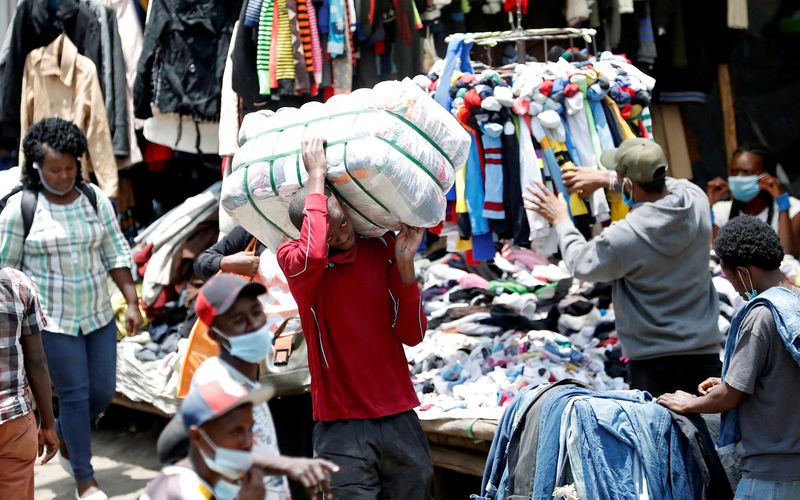By Helen Reid
LONDON (Reuters) - A proposal by France, Denmark and Sweden to restrict used-clothing exports from the European Union could hurt the clothing resale industry in Kenya, which employs 2 million Kenyans, a representative of second-hand clothes sellers said.
The EU exported 1.4 million tonnes of used textiles in 2022, more than twice as much as in 2000 according to U.N. trade data. Exports to developing countries can lead to pollution when clothes that can not be resold end up in dumps, the EU has said.
The three countries are proposing that the EU apply the Basel Convention to used clothes, banning exports of hazardous textile waste and requiring prior informed consent to be obtained before importing textile waste.
"The export of textile waste from the EU to developing countries causes significant environmental, social, and health problems. The EU has to put an end to this practice," Denmark's deputy permanent representative to the EU, Soren Jacobsen, told an Environment Council meeting in Brussels on Monday.
The aim of including used clothes in the Basel Convention would be to reduce or even end exports of used clothes from the EU, and instead to promote the development of textile recycling within the bloc, Cyril Piquemal, France's deputy permanent representative to the EU, said.
But Teresia Wairimu Njenga, chair of the Mitumba Consortium Association of Kenya, which represents sellers of second-hand clothes, told Reuters imports of used clothes supported livelihoods and generated tax revenues for the country.
Njenga denied that the imports contain large amounts of unusable items that end up in landfill.
"Nobody is giving us trash by force – what we are buying is good quality clothes, and if a supplier wants to sell us trash, we would be happy to refuse their consignment," she said.
Kenya imported 177,386 tonnes of used clothing in 2022, a 76% increase on the amount imported in 2013, according to U.N. trade data. African countries including Ghana, Senegal, and South Africa are also significant importers of used clothing, the data shows.
Around 1%-2% of each imported bale of used clothes ends up as waste, according to research commissioned by the association and published in September last year, based on 120 interviews with importers of second-hand clothes in Nairobi.
Njenga has met officials in Lithuania, Finland, and Sweden, to argue against the proposal, and plans to meet officials from the European Commission's Directorate-General for Trade and the Directorate-General for the Environment.
